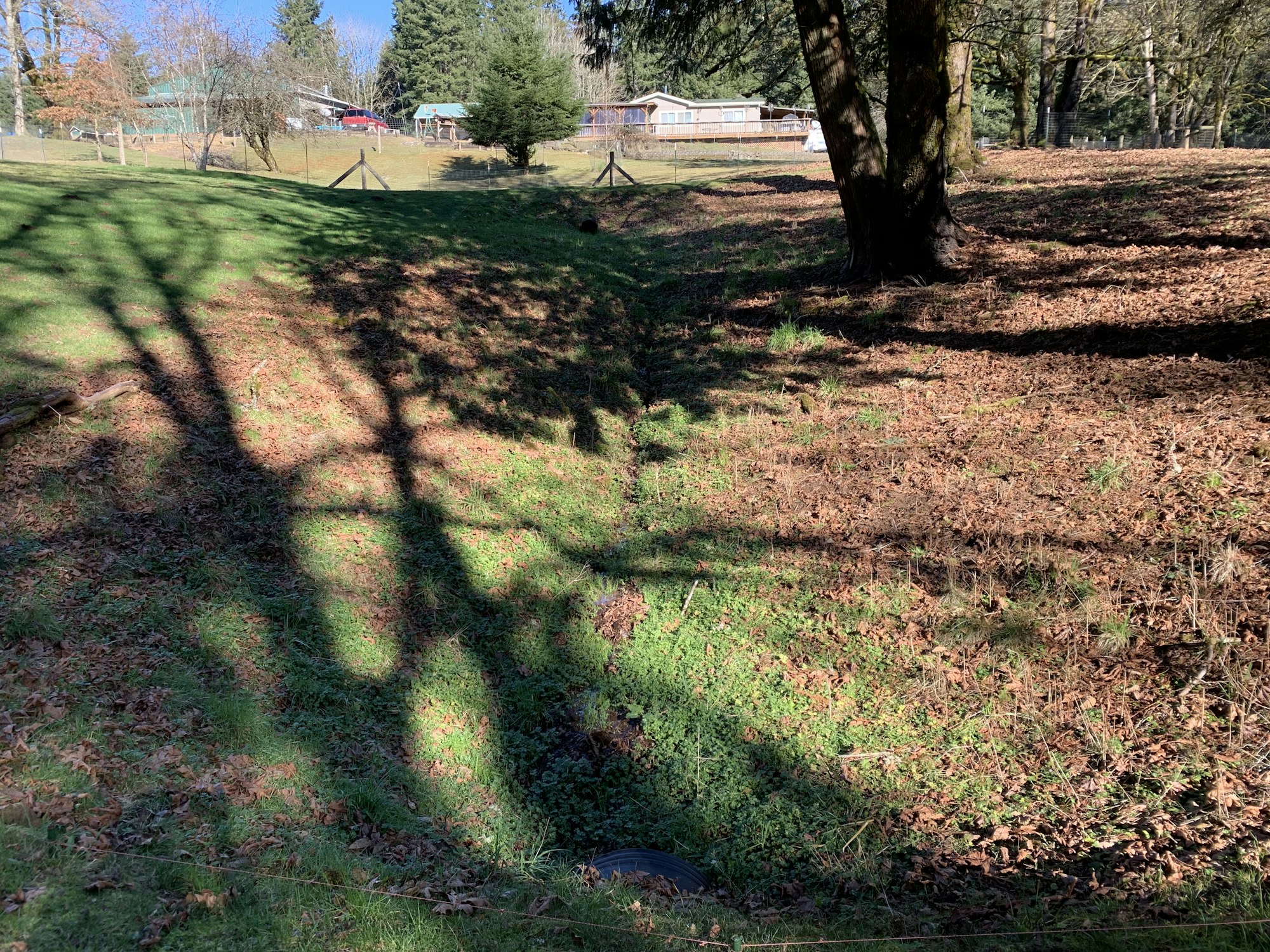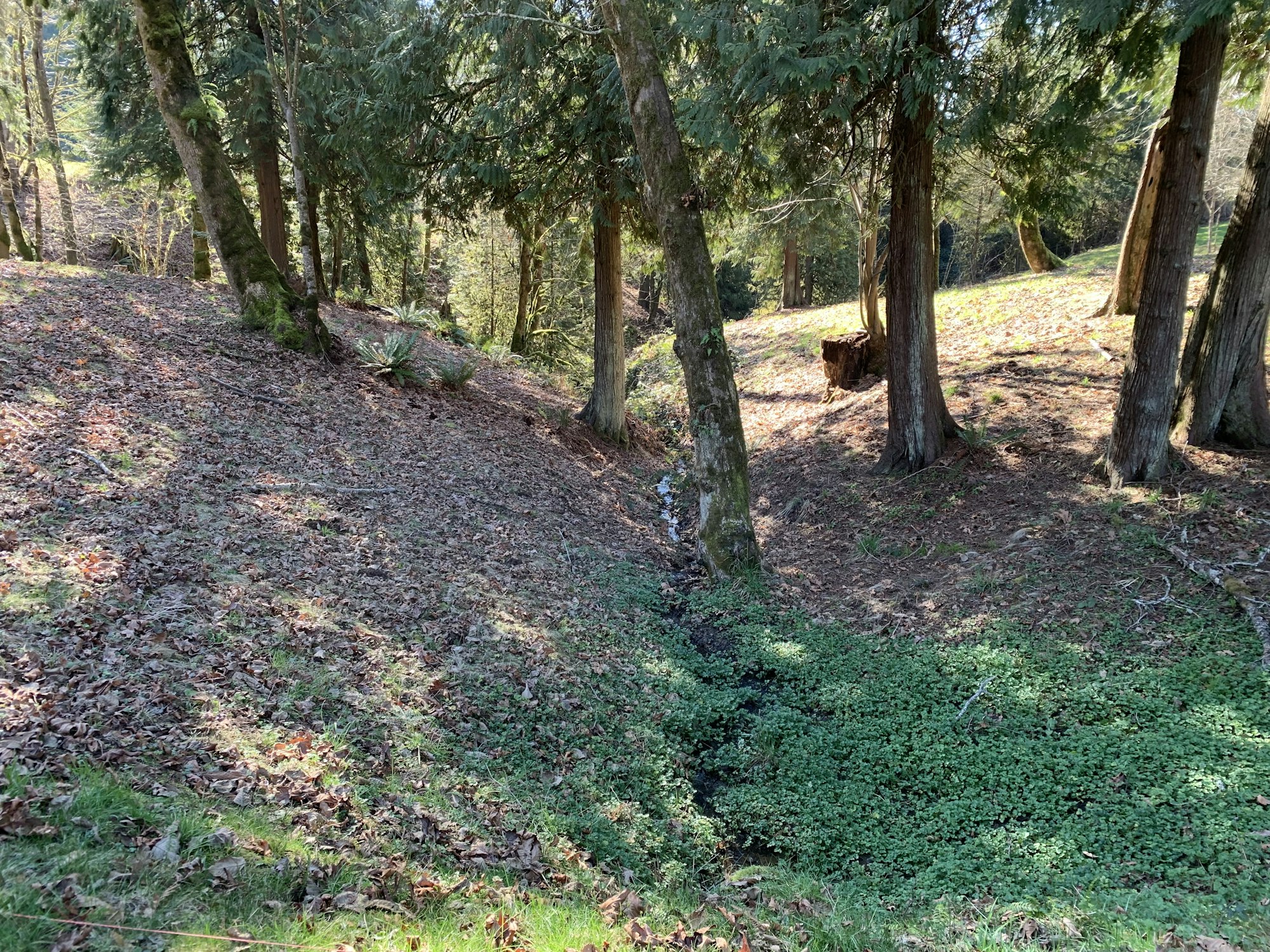Riverhawk Surface Water Filtration & Pollinator Project
The Riverhawk Surface Water Filtration and Pollinator Project aims to enhance water quality, stabilize soils, and create critical pollinator habitats on private property near St. Helens, Oregon. This project addresses agricultural runoff and habitat loss while promoting biodiversity within the Milton Creek watershed, a sub-watershed of Scappoose Bay.
Location: The project site is located on a private property just outside the City of St. Helens within the Coastal ecoregion. It is situated within the Milton Creek watershed.
Partners: Scappoose Bay Watershed, West Multnomah SWCD, Backyard Habitat Certification Program, Private Landowner
Funding: The Oregon Watershed Enhancement Board (OWEB)
Awarded Amount: $14,999
In November 2022, the Columbia SWCD was awarded a small grant for the proposed project:
The Surface Water Filtration and Pollinator Project is a critical initiative addressing water quality and habitat concerns in the Milton Creek watershed near St. Helens, Oregon. The project is essential due to the challenges posed by runoff from an uphill llama farm and the proliferation of invasive blackberries in steep ravines. These issues contribute to water quality, soil instability, and inadequate natural filtration. Furthermore, the decline in pollinator habitats exacerbates biodiversity loss and undermines overall ecosystem health.
To tackle these issues, the project will begin by removing and treating invasive blackberries that dominate the ravines. Mechanical and chemical methods will be employed to control these plants, which currently hinder soil stability and water filtration. Following the removal of invasive species, the ravines will be replanted with native vegetation, including rushes, sedges, and ferns. These plantings are designed to stabilize the soil and enhance the filtration of agricultural runoff.
In addition to restoring the ravines, the project will transform approximately 10,000 square feet of lawn into a pollinator-friendly meadow. This effort will involve removing the existing grass, preparing the site, and planting native seeds and plugs suitable for supporting local pollinator species. A layer of mulch will also be added to protect the seeds and promote their establishment.
Long-term success will depend on a comprehensive maintenance and monitoring plan. The project team, in collaboration with the landowner, will ensure that the restored areas are maintained regularly and monitored for plant health and habitat effectiveness.
The goals of the project are to improve water quality by filtering agricultural runoff, stabilize soil in erosion-prone areas, and create a biodiverse habitat to support declining pollinator populations. Ultimately, the project seeks to enhance ecosystem health and resilience within the Milton Creek watershed, providing long-term benefits for both the environment and the local community.
This project is slated for completion in the Fall of 2024.

















